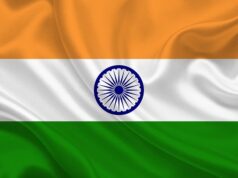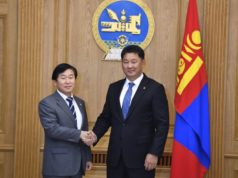North Korean leader Kim Jong-un’s visit to Seoul this year has been canceled. Reportedly, North Korea informed the South through communication channels that a visit within the year would not be possible. Cheong Wa Dae also seems to have concluded that a visit this year would be difficult.
Chairman Kim Jong-un might not have been able to visit the South this year because of security and safety issues concerning the first ever visit to the South by a North Korean leader or because of some South Korean voices against his trip. But most of all, the stalemate in North Korea’s negotiations with the United States was the biggest obstacle. During the Pyongyang summit in September, when Mr. Kim expressed his wishes to visit Seoul, a second summit between North Korea and the U.S. was expected to be held shortly. But negotiations between Pyongyang and Washington have practically been suspended since U.S. Secretary of State Mike Pompeo’s fourth trip to North Korea. This altered Chairman Kim’s plans to head South after agreeing to a big picture on countermeasures for North Korea’s denuclearization with U.S. President Donald Trump.
President Moon Jae-in had promoted a visit this year after determining that Chairman Kim’s visit to Seoul before North Korea’s next summit with the U.S. would contribute to North Korea’s negotiations with the U.S., after a summit with President Trump at the G20 summit. However, North Korea seems to have concluded that a trip would not be satisfactory while the U.S. maintains an ambiguous stance.
Chairman Kim’s visit to Seoul is more affected by the negotiations between North Korea and the U.S. than by inter-Korean relations. The trip was not likely to happen while North Korea and the U.S. failed to narrow their differences on the denuclearization method and corresponding measures. Although it is unfortunate that the trip will not take place this year, there is no reason to see this as a red light on the peace process. On December 12, the two Koreas smoothly completed a mutual verification of the dismantling and withdrawal of guard posts in the demilitarized zone (DMZ). As we can see, inter-Korean relations are making progress one step at a time. As for the negotiations between North Korea and the U.S., there is no indication that North Korea’s willingness to denuclearize has weakened. This is probably the same with the U.S. The government can try again to invite Chairman Kim to South Korea at an appropriate time in the new year.
Now that we have earned some time due to the canceled visit, the government should take this opportunity to readjust its North Korea policy. First, we need to further strengthen the reciprocity of inter-Korean relations and North Korea-U.S. relations. Two inter-Korean summits this year led to progress in negotiations between North Korea and the U.S., but the Pyongyang summit in September failed to do so. North Korea-U.S. negotiations continue out of gear, given that the nature of the negotiations is an exchange of countermeasures. South Korea and the U.S. also exposed their differences on sanctions on North Korea. The Moon Jae-in government’s efforts to promote negotiations between North Korea and the U.S. should be properly evaluated. However, the government should further consider the South’s role in triggering a virtuous cycle between inter-Korean relations and North Korea-U.S. relations.
The government also needs to be more serious in heeding domestic opinions. On the streets, people have pointed out that although the government’s policy is generally heading in the right direction, the government lacked efforts to explain it and persuade the public. Not a few people seem overwhelmed by the speed of this great transition despite their basic support for reconciliation and peace between the two Koreas. In inter-Korean relations and in North Korea-U.S. relations this year, several scenes were witnessed described as happening „for the first time since the division.“ Many citizens welcomed the progress, but not all. Inter-Korean relations are also a diplomatic activity. Diplomacy can only be productive when the government engages in foreign negotiations and domestic persuasion in a balanced manner.



